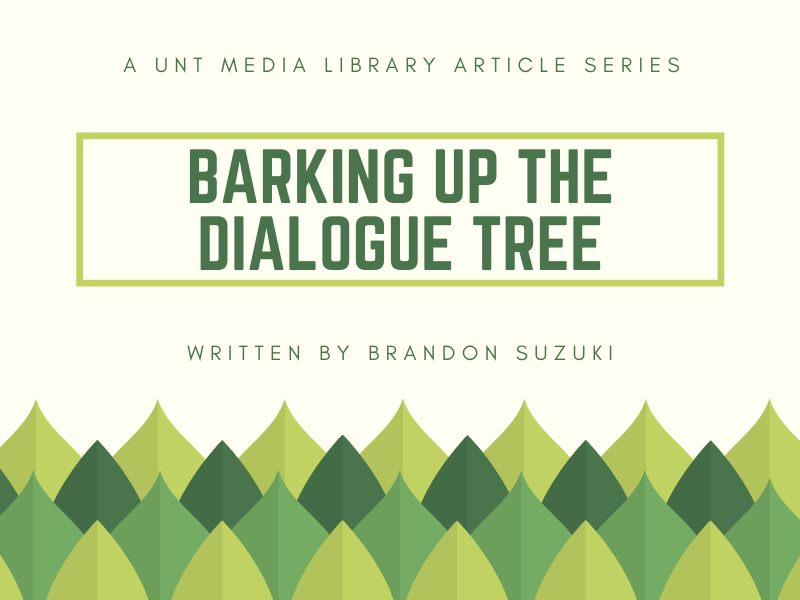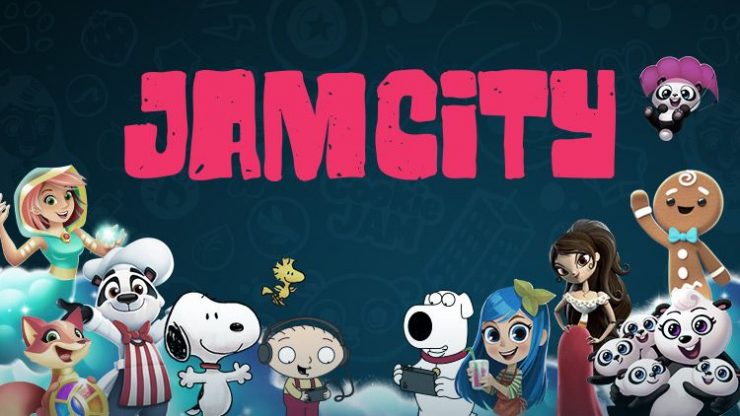
I sat down virtually with Ryan Kaufman to chat about his creative journey, discuss his narrative insights, and gather advice for narrative designers looking to get into the games industry.
Hello! First things first, please introduce yourself. Please let me know if you have any name or pronoun preferences.
I’m Ryan Kaufman, the VP of Narrative at Jam City. My pronouns are he/him.
So, before we jump into your current job, let’s talk about your creative journey! You started your game dev career in QA before moving into level design and writing. Thinking back on your first years in the industry, is there anything you wish you had done/approached differently as a young dev?
I wish I had cross-trained more in 3D modeling (art-side) and scripting (coding/engineering side). In the early days, it was very possible to move around and wear a lot of hats on the game team. So I wish I had taken more advantage of that opportunity to learn. After a few years, the design discipline/job demands became too much to also support cross-training in some other discipline.
Along those lines, are there any mindsets or perspectives you identify as being more important/valuable than you realized at the time?
Yes, in our excitement to design a game, we tended to add tons of features, rather than being ruthless and drilling down on one or two really good iterations. Immersion and a robust feature set is awesome, but most games get really well-known for doing about one or two things excellently—rather than many things in a sort of mediocre way. It feels really scary to prune away features from your game though. Kinda like singing a cappella.
“‘Good player feedback’ can mean a lot of things, depending on what genre you are working in. But knowing that it’s important is a value that is portable from job to job.“
While at LucasArts and Planet Moon Studios you worked on an array of projects that cover a variety of gameplay and narrative genres. How did you approach these genre transitions as a designer and writer? Are there any skill sets you feel carried over from project-to-project?
The funny thing about design skills is that they are pretty basic, when you get right down to it. “Good player feedback” can mean a lot of things, depending on what genre you are working in. But knowing that it’s important is a value that is portable from job to job. I often explained to the narrative designers at Telltale that a muzzle blast and gun recoil in a first-person shooter was the same as dialogue, timing and acting in our narrative adventures—they are assets and events that create “good player feedback”—the goal is the same.
What is your current position and how would you describe your responsibilities?
My current position is Vice-President of Narrative. My responsibilities are to oversee the narrative quality and opportunities across all of Jam City. Whether it’s Harry Potter or Cookie Jam, there is always storytelling happening. These games can look quite different, but they each have some form of story they are trying to tell. With Cookie Jam, the story might just be “this game is a fun escape from reality” but you still have to create events and visuals that support that story.

Game studios are often looking for writers and storytellers with a specific background when hiring for a project or team. These can be writers with experience in branching narratives or character-driven stories, or narrative designers heavily involved with narrative systems and implementation.
Outside of the specifics of each studio, what over-arching narrative skills or perspectives do you most value in your narrative team members, regardless of the project?
I look for people with a “team-focus” type of personality. I usually work on, and hire for, big teams with a lot of people. The interdependence of everyone’s effort is key to understanding how to build a successful game. Some writers are awesome—but they are “lone wolf” types and seek experiences where they can create and iterate in a vacuum.
So, I always try to key in on people who are looking to collaborate, and enjoy the process of watching their story change and refine itself via the team. I also look for storytellers with good design sense or experience, since they more often intuitively consider the player’s role while creating their narratives.
In the same vein, narrative positions in games often cover a variety of creative responsibilities, each specific to the project and team.
What skillsets or experiences (fiction pieces/TTRPG building/scripts/Twine games/Unreal or Unity projects) do you think best prepare burgeoning writers/narrative designers for developing narrative in games?
On the other side, what skillsets or experiences may not be as helpful or necessary?
You named my top two: hosting TTRPG’s and doing Twines. The art of being a DM will really prepare you for interactive narrative. You learn to let go of your pre-conceived notions of what players are going to “want” to do, and become more open to improvising along with them.
For the unnecessary side, I would say that really concentrating on prose style doesn’t generally help too much. You’re not given much opportunity to write long stretches of prose, and even when you do, players generally want it in short pithy chunks. For future novelists, this is a great skill. For budding narrative designers, not so much! (I say this but I write novels in my spare time. I guess it’s my way of letting off steam!)
“I usually work on, and hire for, big teams with a lot of people. The interdependence of everyone’s effort is key to understanding how to build a successful game.“
Thank you so much for your time, Ryan. Do you have any final thoughts for our students?
I hear from many aspiring game devs who are trying to break in and get their first jobs. It is pretty common to be frustrated. There are so many competing for just a handful of spots, and the constant rejections can get demoralizing. Some voice annoyance that job postings require experience, but wonder how they are supposed to get experience first?!
(I can tell you from the game company’s perspective, the pressure to fill a role with someone who will instantly be hitting home-runs is too intense; there is often money on the line, as well as the potential for crunch if things go wrong. It makes them very risk averse. There are often so many people involved in signing off on a new hire, and any one of them might balk.)
My advice would be: screw that noise. Don’t wait for the recruiters and the big companies. Go do your own projects with your own friends—or whatever group you can assemble. This last 2 years has utterly revolutionized our ability to work offline, remotely, with almost anyone. You are in a totally unprecedented climate of collaboration. That can be your ‘experience’ while you are simultaneously creating a demo or calling card that you can show a recruiter later, and say “I made this.”
Playable demos of your projects (school or personal) are often handy if you want to convince someone you can do the job— without having experience.



Leave a Reply